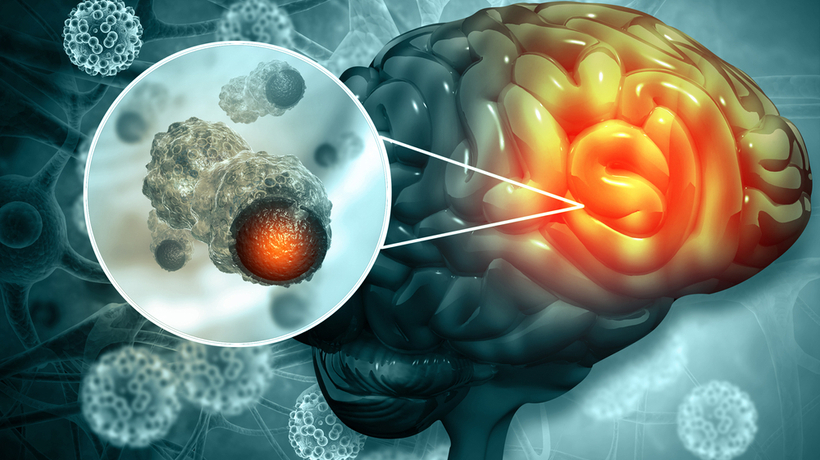Brain cancer sounds like one of the scariest diagnoses out there. Movies and TV have taught us that when someone gets brain cancer, there is little hope—and that’s not totally wrong. With a survival rate of just a little over a third (35 percent) of those diagnosed, it’s a very real fear. Luckily, brain cancer is one of the rarest forms of cancer. According to the American Cancer Society, there is a less than 1 percent chance of being diagnosed with a malignant brain tumor in one’s lifetime.
Two of the most common risk factors are exposure to radiation or family history of brain cancer. While this lets most people breathe easy, it’s important to know what to look for and when to talk to a healthcare professional. As with all cancers, early treatment is integral so watching out for symptoms is important. Here are seven of the most common brain cancer symptoms everyone should know.
Headaches
Intense headaches that produce nausea or vomiting could be a sign of a brain tumor. Or, if occasional headaches become more frequent or adopt a new pattern that increases in severity. Especially when experienced in combination with other symptoms, it may be a good reason to see a doctor.
Nausea
While nausea is a common symptom of many diseases, nausea or vomiting that appears suddenly and doesn’t subside should be taken seriously.
Changes in mood
If a tumor is interfering with your frontal lobe – where the brain controls emotions – or the pituitary gland – where the brain monitors hormone levels – it could lead to some big personality changes.
Seizures
The presence of a brain tumor could cause electrical signals in the brain to change, which can cause seizures. If you don’t already have a seizure disorder, this could be a sign of a brain tumor or another serious problem. Seek immediate medical care.
Changes in vision/hearing
If a tumor is behind your eye or in your ear, it could cause noticeable changes in vision and hearing. It’s important to get your eyes checked every year, but if there are any serious symptom developments that are otherwise unexplained, ask your healthcare professional for a brain scan.
Brain fog/clumsiness
A tumor in the inner ear where balance is controlled, or an acoustic neuroma, could be the reason for dropping your coffee or missing the final step on the stairs. Similarly, if you begin having difficulty with speech, like forgetting names or blanking on what you’re going to say, it could be a more serious sign. If paired with other symptoms on this list, it may be a good time to see a healthcare professional.
Loss of sensation
Continuous loss of sensation in an arm or a leg could be a sign that something is disrupting your brain function. This symptom is probably concerning enough you would see a healthcare professional anyway but asking for a brain scan is important for early detection.
Sources:
https://www.womenshealthmag.com/health/a19994135/brain-cancer-symptoms/
https://www.mayoclinic.org/diseases-conditions/brain-tumor/symptoms-causes/syc-20350084



